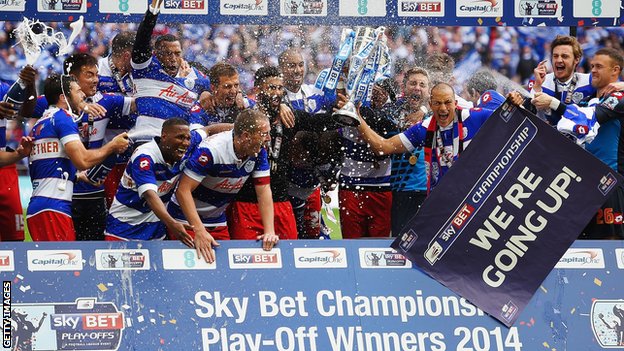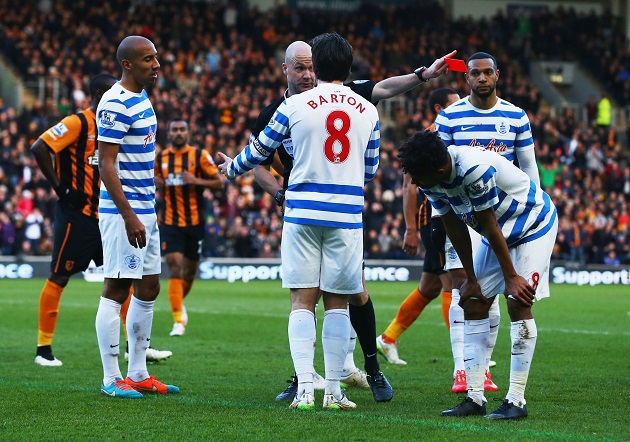Stop me if you’re heard this before: Queens Park Rangers are getting relegated. After earning promotion from the English Championship just last year, the team from London has again failed in their latest attempt to stop the seemingly endless yo-yoing between the first and second division. In the previous ten seasons, the Hoops have earned promotion twice and on only one of those occasions have they managed to survive for longer than one year, and that was when they finished 17th just one point above the drop zone.
Even with this terrible track record, every time Rangers get promoted there is a wave of optimism that sweeps over the fan base. This optimism is caused by the ownership investing in big name players in the offseason and the success of their current manager in the second division. About a month in, the disappointment and pessimism starts to creep in. The players that were supposed to elevate the quality of the squad fail to fully adjust and integrate to their new surroundings and the lack of immediate success leads fans and ownership to demand a new manager that leads to an abrupt change early in the season that comes with a major learning curve as players adjust to this new playing style. By the time that the players learn what their new manager wants, it’s already too late to salvage the season and the drop back down to the Championship leads to the departure of the top-class players the club signed in the summer.
When the club first earned promotion in 2011, only 13 outfield players survived the transition from the second division to the first team. Of those 13 players, only five managed to make more than 20 appearances in the 2011-12 campaign and one of those five recorded at least 30 appearances. This means that QPR essentially fielded a completely different squad than the one that earned them promotion in the first place. The signings of aging players like the polarizing Joey Barton (29), Anton Ferdinand (26), and Shaun Wright-Phillips (30) were intended to bring Premier League experience to this new squad, but a lack of cohesion and chemistry severely limited the influence that this injection of experience could bring.
At the halfway point of the season, Rangers sat just two points above the drop zone despite all of the spending that occurred just five months prior. Granted, it is always difficult for a newly promoted club to succeed in the league, but with the injection of players and finances that accompanied the club’s rise, fans had a right to expect more from their club. This poor form led ownership to axe the manager that led them to the top, Neil Warnock, and bring in Mark Hughes and another aging striker in Bobby Zamora (31). Hughes managed to save his new club from the drop but just barely.
Another year in the Premier League came with another summer of “big” signings. The club made no hesitation as they brought in proven internationals Park Ji-Sung (31), Robert Green (32), José Boswinga (30) and Júlio César (33). Despite all of the new signings, QPR managed to win just twice in their first ten matches and second from the bottom of the table where they led Southampton by a one-goal difference. By the end of November, the club slumped to the foot of the table and in typical QPR fashion, Mark Hughes was sacked and replaced by Harry Redknapp. The introduction of the experienced manager proved to be too little too late for the London club to survive another year in the top-flight as they finished the season still at the bottom of the table and back in the second division.
In the most recent edition of the QPR’s Premier League fight, the team kept 17 players from their Championship side, four more than what they kept in the previous promotion campaign. However, despite the increase in transitioned players, only six of them recorded 20 or more appearances. QPR again went to the transfer market in an attempt to elevate and improve their squad as they brought in players like Dutch international Leroy Fer (25), Eduardo Vargas (25), Steven Caulker (23) and former Manchester United stalwart Rio Ferdinand (36).
It was almost déjà vu for Rangers fans as they saw their team teeter on the edge of the drop zone. The only major differences were that they were in a club-best 16th place at the midway point of the season and their manager left on his own accord in February instead of being sacked by the owners. The latest man to take over the helm for the struggling London side is Chris Ramsey. The Englishman hasn’t experienced much luck during his 12 games in charge of the squad. Through those first 12 matches, Ramsey has only won three (just a 25 percent winning ratio).
It is yet to be seen how the squad will be affected by this latest relegation in the summer, but many experts predict that players like Leroy Fer and leading scorer Charlie Austin (17 goals) will move to greener pastures when the transfer window opens. One thing is guaranteed, however, as Chris Ramsey has just signed a three-year contract to remain manager of the club. Whether or not he survives for all three of those seasons is yet to be seen.
In my opinion, a couple years back in the Championship could benefit Rangers more than popping back into the Premier League. Two or three seasons in the second division will allow the squad to build cohesion with one another and it will also take some pressure off of the ownership to go out and sign unnecessary players just to appease the fans. As with any club, the success of QPR relies heavily on the decisions of the ownership. Like I mentioned before, the continuous revolving door of managers adds an unnecessary transition period for the players and makes it even harder for the side to develop.
As much as I hope QPR never return to the Premier League for their injury time collapse that let Manchester City usurp United for the Premier League Crown in 2014, I do believe that if they stick with Ramsey as manager and continue to develop their playing style with the players they have with one or two additions in transfer windows, they will find their way back to the Premier League. Ownership must resist the urge to change managers at the first sign of distress and believe in the squad they have rather than splurging and overpaying on outside players.







No Comments